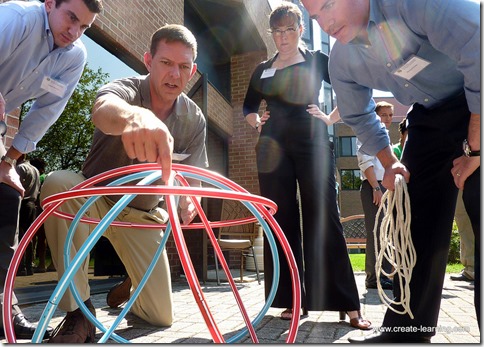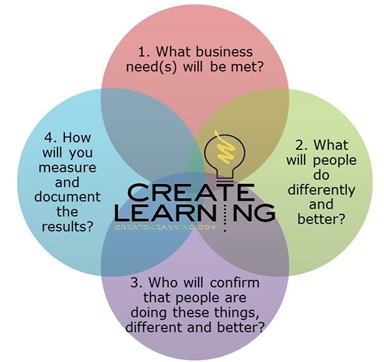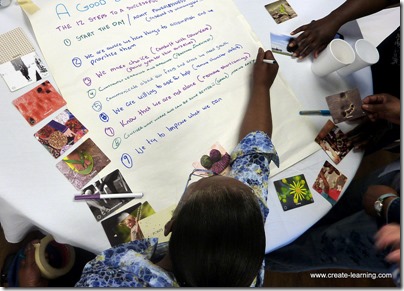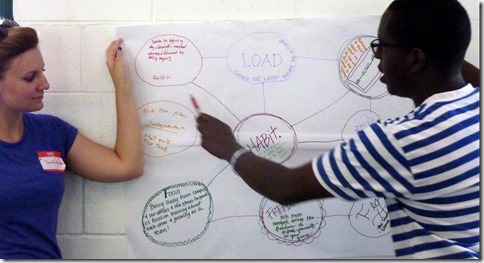This is a slightly edited version of one of my first blog articles. I find these ideas to be as true today as they were when I originally wrote them in 2008.
Successful teambuilding happens when you:
- Have a known + shared purpose a business cause for the team building
- Have a professional who understands team development & organization development. Integrating work systems & team building activities in a way that is useful to the participants.
- Look for learning moments & exceptions + bright spots. Using the opportunity to reinforce achievements that are connected to the business case for the team building.
- Work with the team building facilitator to develop continued and iterative ways to reinforce what was gained + action plans developed back in the workplace.
- Have the right people in the room that can make a difference.
Otherwise you are spreading Frosting on a Shit Cake.
Here are 4 Requisite Steps for a Team Building Program to be a success.
1) Full understanding why they are there.
It is imperative for each person on the team be knowledgeable of why they are involved in the team development.
Transparency of goals, expectations, needs of the team and individual participants + how this may be useful at their work will help people feel comfortable and understand the context of the day.
If you plan on surprising the team with a jolt of, “The Company feels you are dysfunctional and we are going to spend a day team building.” This will show a lack of trust and that you are treating the team like children. Even youth groups will hate this and hate you for making them do this.
Meet with the team ask them what they feel is the team successes & challenges, involve them in making decisions. Team members know what is going on and they will tell you what they need – all you have to do is ask.
2) Proper sequencing of events.
This is why meeting with the team building consultant is necessary.
Sequencing is building from a “safe” point to a “riskier” point through team building activities and discussions. If done properly the team learns as the program progresses.
Whether the team process 2 hours or 2 years – sequencing takes planning and time. A good starting point of sequencing would be Tuckman’s Stages of group development, Forming, Storming, Norming, Performing, and Adjourning.
It is imperative to understand that at any point the team may shift from one stage to another. This should be kept in mind when sequencing team building activities and lecture based materials for the team program.
3) Focus on Processing and Reflection.
If you truly wish for a team building recreation event – realize all you will get is a great time and laughs. That is a wonderful thing and can build morale.
If you wish for actual improvements to how the team works and results to the business then do your research.
The team building activities are just vehicles to deliver learning to the team. The point of hands-on initiatives is to allow the team members to reinforce and test new learning and skills gained during a discussion based part of the team program.
Processing & reflection (with the right facilitator) is exciting and motivating. Before you commit to a program ask the facilitator to lead a small sample exercise. You should feel at the end that you learned and gained some knowledge, a great facilitator makes you feel like you taught him something.
4) Follow up and now what?
Team building is a long term project.
At the end of the session ask the team what to do to harness the energy and ideas that were generated. Create a plan to follow up. Even go so far as to write down and put the goals and skills learned from the team building program into evaluations for the team members.
We all want to do our best and what stops this from this happening are systems within our lives and work that we cannot see or navigate around at that time. Team Building, when done properly, has the opportunity to show us the path to do our best work.
What do you think?
How are these 4 points useful? What would you add? In what ways can team building be effective?
michael cardus is create-learning







